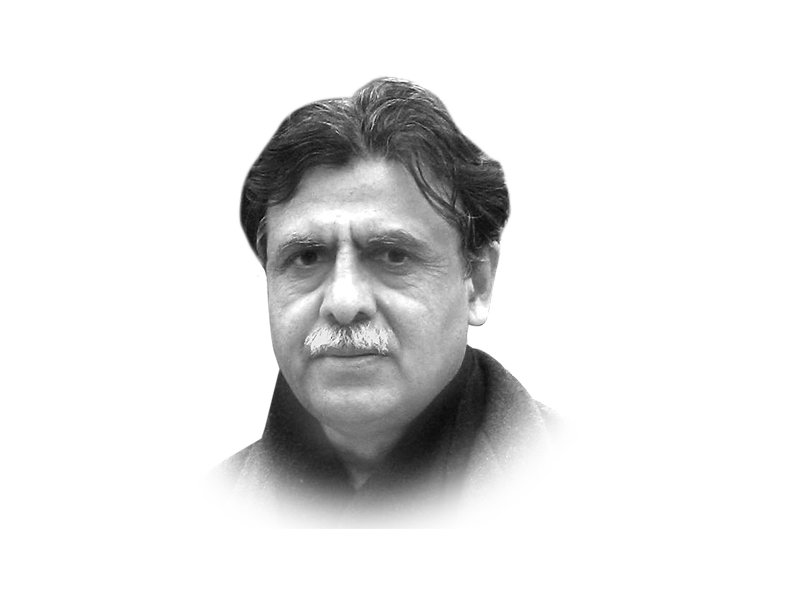
In a masterly manner, Dostoyevsky has delved into the psychological moral crisis of his age giving hope of there being a silver lining in the future. Drawing analogy with our present state, one has the feeling that we are in the midst of a far more serious moral and spiritual crisis. What ultimately saved the protagonist in Crime and Punishment from complete breakdown was the faith in a set of beliefs which had the effect of fostering an abiding bond in society. In our case, the irony is that a certain belief system has been violently appropriated by elements who are accentuating 'otherness' and are thriving on differentiating and excluding ‘others’ and claiming a high moral ground in the process. This process does not just stop here and continues till this 'otherness' culminates into a physical elimination of the ‘rest’. To the holders of this belief system, the victims of their acts are the ‘vermin’ of earth, which reminds one of how Raskolnikov perceived his victim.
The Safoora Goth massacre, while jolting the entire nation, has dispelled many stereotypes. Acts of terror and horror cannot be thrown only at the doors of religious seminaries; tech-savvy bright young graduates from top schools can be as lethal. To see this, all we need to do is raise our antennae and watch this fast-spreading cancerous rot. While suicide bombers may well be showing signs of weariness, what we are now seeing are squads of marksmen who accomplish their murderous acts through close range gunshots and then walk away with ease. The end objective is to create a make-believe world of their own, reinvent the 'glorious past’ even if it ruins the present and the future. These are not the hardened criminals of yore whom it was difficult to break. This new breed of terrorists, like Raskolnikov, carries with it the burden of conscience. As soon as these people are nabbed, they start spilling the beans and provide leads which help track down their comrades. These ‘holy’ warriors do not have the bent to suffer pain once in custody.
At the same time, our official reaction, which does not rule out the possibility of RAW involvement in Karachi and Balochistan, is understandable. After all, it is the same agency which in the 1970s delivered Sikkim to India as its 22nd state. During the 1971 crisis when the Indian Army sought more time to carry out an onslaught in the former eastern wing of Pakistan, it was this agency which trained the Mukti Bahinis during the interregnum between April-December 1971. My concern is not just about the meddling of RAW in our internal affairs. The real issue to consider is this: why shouldn't RAW be meddling in our affairs when we have so much to offer it on a platter? The agency has a well-laid mandate of covert operations across boundaries. Its former chief and now the Indian prime minister’s national security adviser, Ajit Doval, never tires of publicly talking about his seven-year covert stay in Pakistan. Data Darbar in Lahore had been his favourite haunt. That speaks of the ingress of RAW's network while our neighbours continue to blame Pakistan for anything unpleasant happening inside India. Pakistan has a genuine concern about Afghan territory being used as a launch pad for covert operations. Strategic collaboration between RAW and the National Directorate of Security during the Hamid Karzai days is quite well-known. Pakistan needs to flex its diplomatic muscles; our voice has to be loud and clear.
At the same time, we as a nation need to be very clear. Operation Zarb-e-Azb, despite its effectiveness, is not the only answer to massacres like the ones that happened at the APS and in Safoora Goth. After denying terrorists physical spaces, there is a need to squeeze these elements out of 'cerebral spaces' where they are entrenched with the overt and covert support of their empathisers. There is a battle raging in the cerebral spaces and we need to fight it.
Organisational and technological degradation of these elements is just one part of the story. It is the doctrinal narrative, so pervasive and deep, that has to be addressed and countered with logic and reason. Operation Zarb-e-Azb has brought the nation to a point where the state and society should take the lead and draw a roadmap to purge the national narrative of its toxicity. Are our imams at the pulpit, anchors at prime time, syllabus-setters in the textbook boards, regulators dealing with hate material and political leaders harping about their mandate, all geared to take up the responsibility? This question is now unavoidable and needs a categorical answer.
Published in The Express Tribune, June 2nd, 2015.
Like Opinion & Editorial on Facebook, follow @ETOpEd on Twitter to receive all updates on all our daily pieces.













COMMENTS (5)
Comments are moderated and generally will be posted if they are on-topic and not abusive.
For more information, please see our Comments FAQ